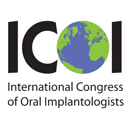Periodontal Disease
What Is Periodontal Disease?
Periodontal is a word that refers to everything surrounding the teeth. As dentists, we aren’t just interested in the teeth themselves. We want to protect the gums, bone, tendons, and joints of the face as well.
It’s very easy to forget that our gums need as much regular care and attention as our teeth do. Flossing and attentive care fall by the wayside far too often. However, taking care of your gums is critical to the prevention of periodontal disease.
Causes of Gum Disease

Each day our teeth and gums acquire a bacterial film called plaque. It is present in every mouth — regardless of age, health conditions, or any other factor. That’s why it must be kept at bay through regular brushing, flossing, and dental visits.
Plaque finds its way into the hard-to-reach spaces between teeth and at the edges of the gum line. Once there, it irritates the gums as bacteria flourish on the surface of your teeth.
This causes:
These are all signs of gingivitis, the early form of gum disease. Gingivitis is simple to treat if it is noticed early enough. A thorough, professional cleaning by a hygienist, followed by proper daily brushing and flossing, can clear it up and restore the health of your gums.
Advanced Gum Disease

If left to its own devices, plaque will harden into tartar, irritating the gums even more and becoming an ideal foundation for collecting more plaque.
This process causes inflammation of the gums to increase, which eventually results in:
This stage of gum disease is called periodontitis.
Periodontitis cannot be treated at home. It is much more serious and harder to heal than gingivitis. This damage to the gums affects the bone and the adjacent teeth, making the risk of complete tooth loss very real.






